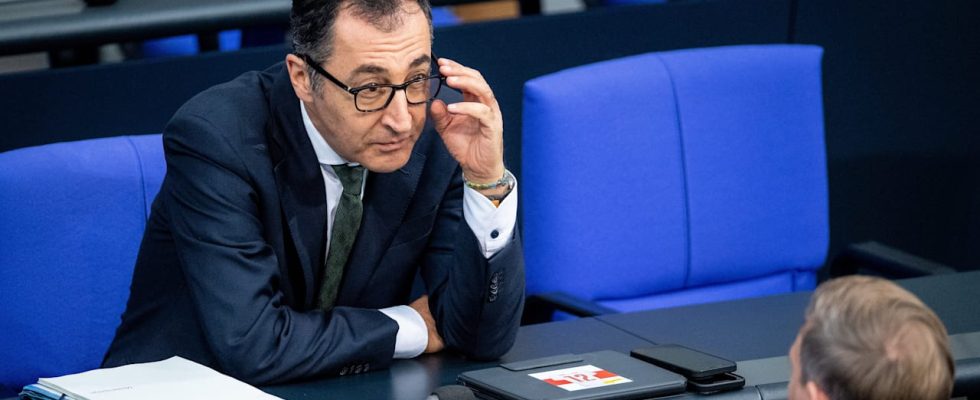After the budget agreement, the operators of the 262,000 agricultural businesses in Germany are looking down the drain – but the Minister of Agriculture Cem Ozdemir (57, Green) raises his hands.
That’s what it’s about: The so-called agricultural diesel will probably be gone from 2024. In the future, farmers will have to pay 21.48 cents per liter more for all agricultural vehicles. The vehicle tax exemption for these vehicles (so-called “green license plate”) will then also be a thing of the past.
► Together, this means an additional burden of almost a billion euros Agriculture per year, estimates the German Farmers’ Association. President Joachim Rukwied to BILD: “It’s enough! If these proposals are not withdrawn, there will be violent protests.”
Traffic lights play Black Peter
Federal Agriculture Minister Cem Özdemir (57, Greens) passed the buck after the traffic light agreement on Wednesday first to go. The results were “told” to him in the morning. He called the cuts for agriculture “problematic”. But, according to Özdemir: “Responsibility for both issues” lies with Finance Minister Christian Lindner (44, FDP).
But there are doubts about this representation. The suspicion: Özdemir’s own ministry brought cuts to agricultural diesel into play.
► In a letter (available from BILD) from Özdemir’s State Secretary Silvia Bender to Budget State Secretary Werner Gatzer from June 2023 it says: “The agreed savings (in the agricultural budget) still mean a very tense situation for our budget in the coming years . We will therefore approach the Ministry of Finance with proposals for revising agricultural diesel subsidies in order to be able to better address urgently needed transformation tasks in the BMEL budget from 2025 onwards.”
FDP agricultural expert Gero Hocker (48) therefore accuses the Minister of Food of double play. It is “not without a certain irony if the Minister of Agriculture is now shedding crocodile tears over a result that he himself had demanded. The green proposal was put forward by Cem Özdemir, rated as effective by Robert Habeck and only found its way into the relief budget. The cuts in agricultural subsidies would be “a hard double blow for agriculture.”
FDP parliamentary group deputy Carina Konrad (41) wrote on “X” (formerly Twitter) that the Ministry of Food had made the “proposal for agricultural diesel” itself. Özdemir’s criticism was “bigoted”.
FDP nutrition expert Gero Hocker clearly contradicts Agriculture Minister Özdemir
Özdemir rejects the allegations to the FDP-led Finance Ministry.
A spokesman for BILD: “The Ministry of Food has never made such a proposal!” It is true that as part of the internal budget preparation in the middle of the year, the Ministry of Finance raised the question of agricultural diesel subsidies for the first time in order to set savings targets for future budgets from 2025 compensate.
The Ministry of Agriculture then promised the Ministry of Finance “to examine a revision (not deletion!) of the agricultural diesel subsidy if these freed-up funds continue to benefit the transformation tasks in agriculture.” However, this approach was not pursued further politically due to the excessive burden on agriculture.
That probably means: Lindner and the FDP are to blame!
Bilger (CDU): “Betrayal of agriculture”
Who is right? One thing is certain: agricultural diesel has long been a thorn in the side of many Greens. Green Party chief budget officer Sven Christian Kindler (38) spoke out in favor of eliminating climate-damaging subsidies in agriculture at the 2021 traffic light coalition negotiations. Since the budget ruling of November 2023, Özdemir himself has publicly spoken out in favor of retaining agricultural diesel.
Union parliamentary group vice-president Steffen Bilger (44, CDU) says that’s not enough: “If it’s true that the minister played a double game against the farmers – as the FDP claims – he has finally lost all credibility with the farmers.” Bilger’s conclusion: “This is a betrayal of agriculture!”

